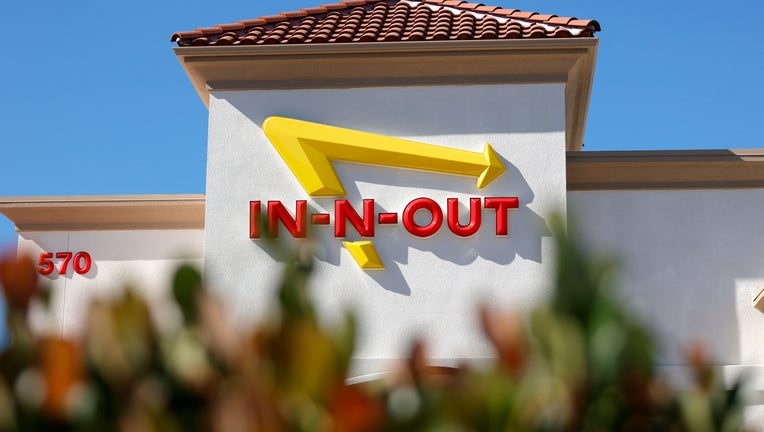In-N-Out Burger removes artificial coloring from these products

PLEASANT HILL, CALIFORNIA - OCTOBER 28: The In-n-Out logo is displayed on the front of an In-n-Out restaurant(Photo by Justin Sullivan/Getty Images)
OAKLAND, Calif. - Less than a month after the Food and Drug Administration announced it wanted foodmakers to phase out petroleum-based artifical colors, In-N-Out Burger said it was getting rid of the dyes from two of its drinks.
What we know:
On Wednesday, company spokeswoman Patty Peña said that In-N-Out has removed artificial coloring, called Red 40, from the strawberry shakes and signature pink lemonade, and replaced it with beta carotene and vegetable juice.
She said that the chain is also in the process of "transitioning to an upgraded ketchup," which is made with real sugar instead of high-fructose corn syrup.
Over the past several years, the company has:
- Replaced Yellow 5 with turmeric in pickles, chilies, and spread
- Replaced artificial vanilla with natural vanilla in the shake mix
- Replaced artificial flavors with natural flavors in chocolate syrup and hot cocoa
- Replaced high fructose corn syrup with natural sugar in the shake mix, strawberry syrup, spread, and pink lemonade
- Replaced calcium propionate with natural enzymes in buns and removed cottonseed oil
In-N-Out also said they've introduce a healthier beverage sweetener option by replacing sucralose and saccharin sweetener packets with Stevia Leaf Extract, and added a non-dairy alternative, oat milk creamer.
The company is now researching a better-quality oil for its fries.
The backstory:
Peña did not specifically state the impetus for the change, but it does come after FDA commissioner Marty Makary said at an April 22 news conference that the agency would take steps to eliminate the synthetic dyes by the end of 2026, largely by relying on voluntary efforts from the food industry.
Health Secretary Robert F. Kennedy Jr., who attended the gathering, said he had heard from food manufacturers, but had no formal agreements with them.
The officials said the FDA would establish a standard and timeline for industry to switch to natural alternatives, revoke authorization for dyes not in production within coming weeks and take action to remove remaining dyes on the market.
Health advocates have long called for the removal of artificial dyes from foods, citing mixed studies indicating they can cause neurobehavioral problems, including hyperactivity and attention issues, in some children. The FDA has maintained that the approved dyes are safe and that "the totality of scientific evidence shows that most children have no adverse effects when consuming foods containing color additives."
The FDA currently allows 36 food color additives, including eight synthetic dyes. In January, the agency announced that the dye known as Red 3 — used in candies, cakes and some medications — would be banned in food by 2027 because it caused cancer in laboratory rats.
In February, the company, which had been based in Irvine, Calif., for 30 years, announced it was moving its headquarters to Tennessee.

